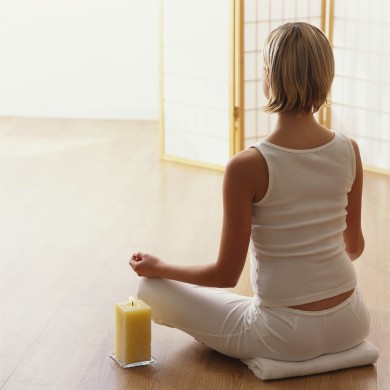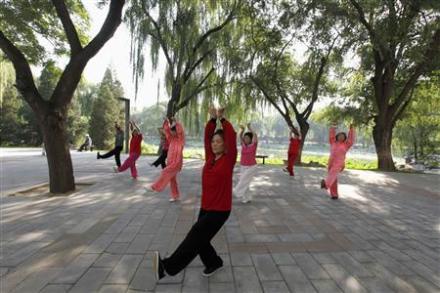
J Integr Med. 2013 Jul;11(4):241-5
Authors: González López-Arza MV, Varela-Donoso E, Montanero-Fernández J, Rodríguez-Mansilla J, González-Sánchez B, González López-Arza L
Abstract
BACKGROUND: Balance problems are common in people of all ages and can lead to falls, thus causing fractures with consequent disability. Qigong practice has long been part of daily life in Chinese culture, and has good effects on physical health maintenance.
OBJECTIVE: The present work describes the change in balance in young, healthy women after practising Qigong for eight weeks.
DESIGN, SETTING, PARTICIPANTS AND INTERVENTIONS: The study took the form of a controlled, randomised longitudinal trial, and involved 30 women aged 18-25 years. The subjects had no prior experience of Qigong or Tai Chi and were unaware of the aims of the study. Subjects were randomly assigned to a Qigong intervention group or a control group. Those in the Qigong intervention group performed “exercises in 20 figures for health and long-life” (Wang Ziping) for 1 h twice per week, for 4 weeks. The control group undertook no exercise at all.
MAIN OUTCOME MEASURES: The main outcome measure was the stabilometry values. These were obtained in a unipodal support test, using a plantar pressure platform with optical sensors.
RESULTS: The Qigong subjects showed a significant improvement in their stabilometry results (40.1% pre-intervention and 56.4% post-intervention) (P< 0.045), while no improvement was seen in the control group (51.2% pre-intervention and 53.5% post-intervention). At the beginning of the intervention, the stabilometry values recorded for the Qigong intervention group were worse than those recorded for the control group (40.15% and 51.21% respectively; P=0.121). However, a comparison of the post-intervention values between these groups showed that these differences have disappeared (P=0.653).
CONCLUSION: Qigong can improve balance in healthy, young women.PMID: 23867242 [PubMed – in process]
Tony Burris, L.Ac., is a 17-year practitioner of Traditional Chinese Medicine (TCM) and is an expert in safe and effective acupuncture therapy and herbal remedies. He is the only practitioner in the United States that offers a “Painless Acupuncture- Or Your Money Back!” Guarantee. Tony helps frustrated and injured athletes and chronic pain sufferers discover a unique therapy system that often provides long-lasting or even permanent pain relief. His patients include members of the San Diego Chargers, Washington Redskins, Denver Broncos, Chicago Bears and Detroit Lions. Tony also treats members of the Seattle Mariners, Olympic medalists, mixed martial artists and NCAA competitors. Contact Tony @ tony@eagleacuuncture.com
